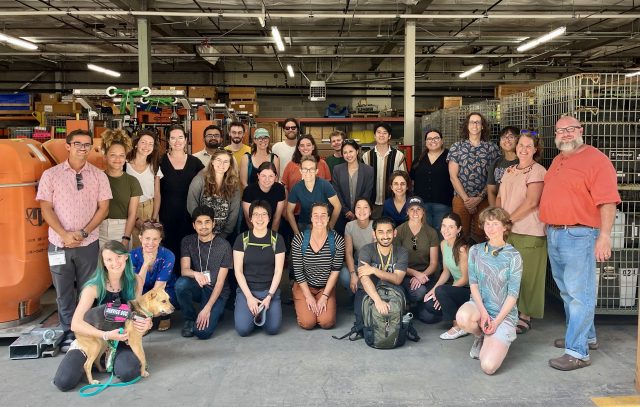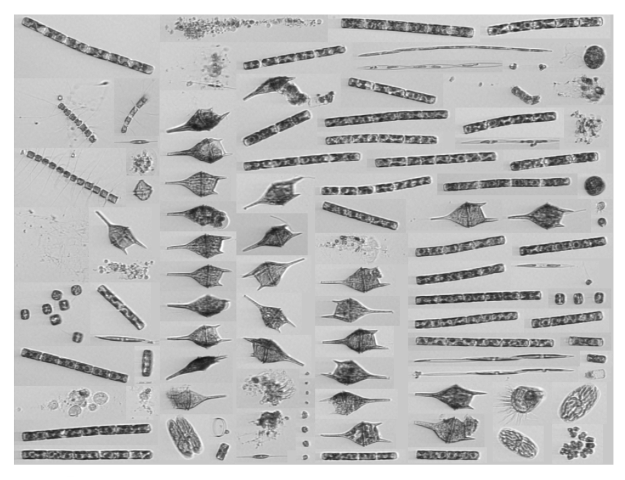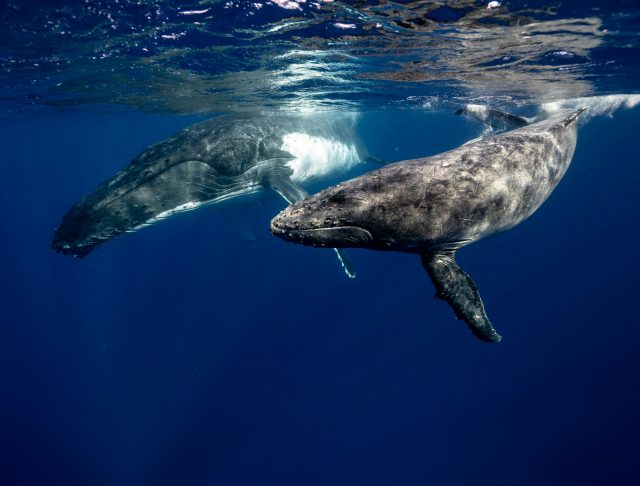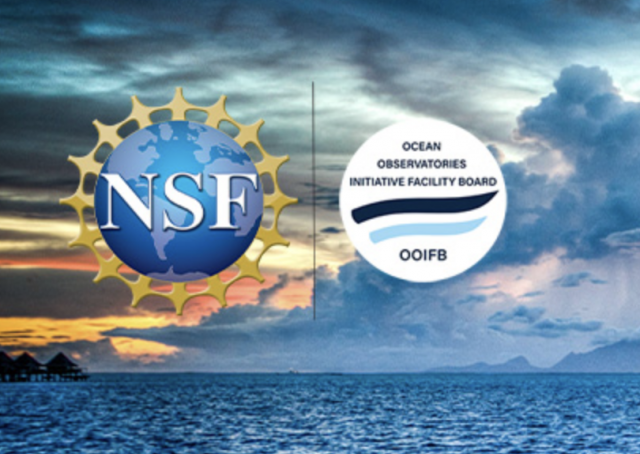Posts Tagged ‘OOIFB’
2025 OOIFB Summer School on Acoustics
From July 14-18, 2025, the U.S. National Science Founded funded OOI Facility Board (OOIFB) hosted an immersive summer school at the University of Washington in Seattle, bringing together early-career ocean scientists to explore the science and applications of underwater acoustics using Ocean Observatories Initiative (OOI) data.
Co-chaired by Dr. Wu-Jung Lee and Dr. Shima Abadi of the University of Washington, the program combined targeted lectures, hands-on tutorials, and real-world exercises to build participant expertise in accessing, processing, and interpreting both active and passive acoustic datasets including those from echosounders, hydrophones, and bioacoustic sonars available through the OOI network.
Over five days, participants gained:
- Core knowledge on underwater sound propagation and the main factors influencing it.
- Familiarity with the range of acoustic instruments deployed in the OOI network.
- Practical skills in navigating OOI data portals to access and download acoustic and complementary oceanographic datasets.
- Experience working with OOI datasets in JupyterHub, building Python skills and reinforcing coding as a core part of the program.
- Insights into scientific questions that can be addressed using OOI data.
- Connections with a community of researchers using OOI data in their work.
Participants
This year’s program welcomed 23 advanced graduate students, postdoctoral fellows, and early-career scientists from diverse research backgrounds. While geared toward those with an interest in underwater acoustics, the school was designed to be accessible, with no prior deep expertise required and high-level primers on underwater acoustics provided.
Looking Ahead
Archived materials, including the full agenda and select summer school resources, will be made available in the coming months for the broader research community.
The OOIFB Summer School on Acoustics exemplifies how targeted training can build a knowledge base in ocean acoustics research and broaden the use of OOI data in science and education.
[caption id="attachment_36880" align="alignnone" width="2560"] The 2025 OOIFB Summer School on Acoustics cohort at the OOI-RCA Sand Point Facility.
The 2025 OOIFB Summer School on Acoustics cohort at the OOI-RCA Sand Point Facility. [/caption]
[caption id="attachment_36895" align="alignnone" width="2560"]
[/caption]
[caption id="attachment_36895" align="alignnone" width="2560"]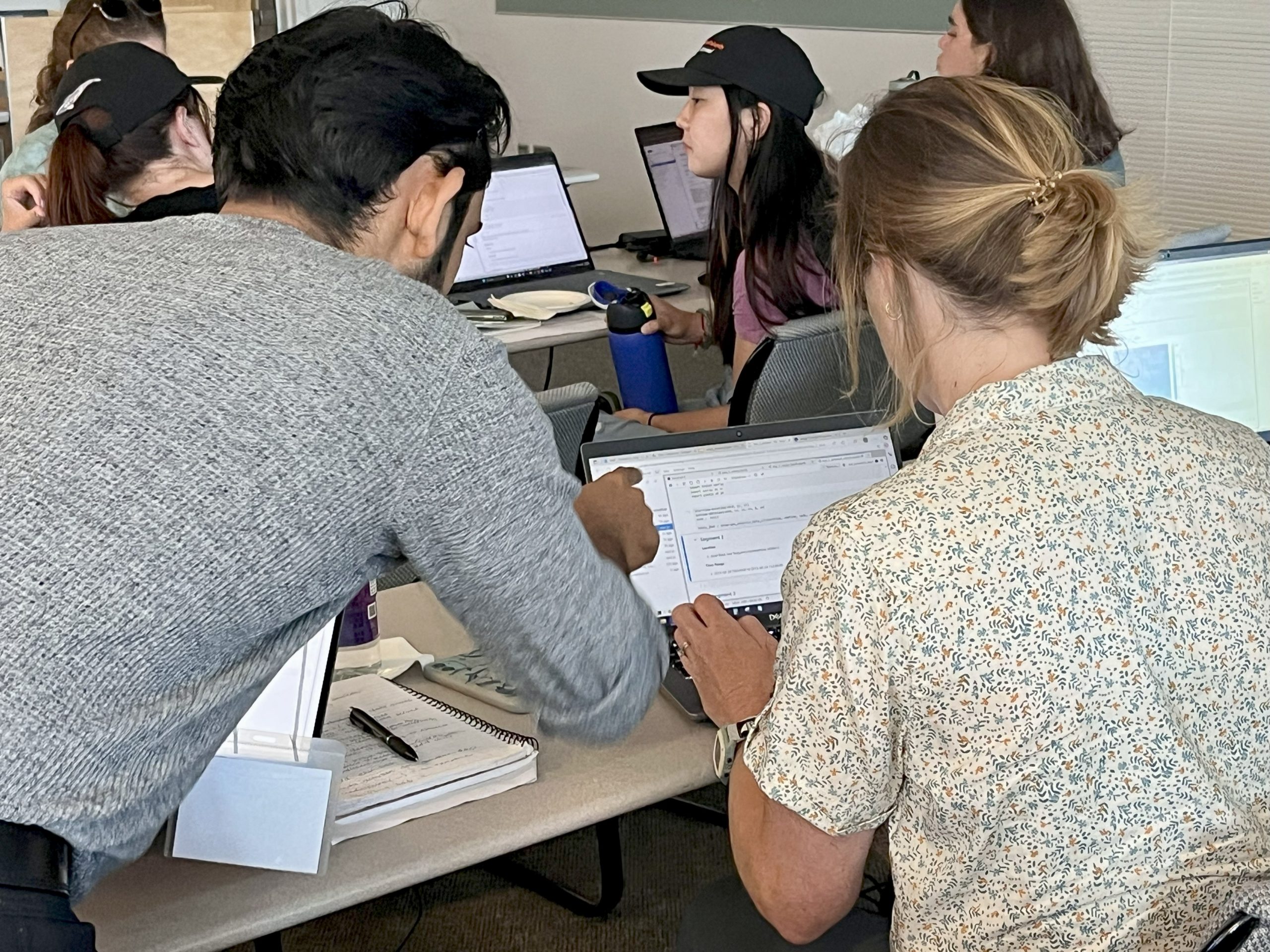 Students working through data exercises in the OOI JupyterHub environment. Credit: Holly Morin, OOIFB[/caption]
[caption id="attachment_36896" align="alignnone" width="2560"]
Students working through data exercises in the OOI JupyterHub environment. Credit: Holly Morin, OOIFB[/caption]
[caption id="attachment_36896" align="alignnone" width="2560"]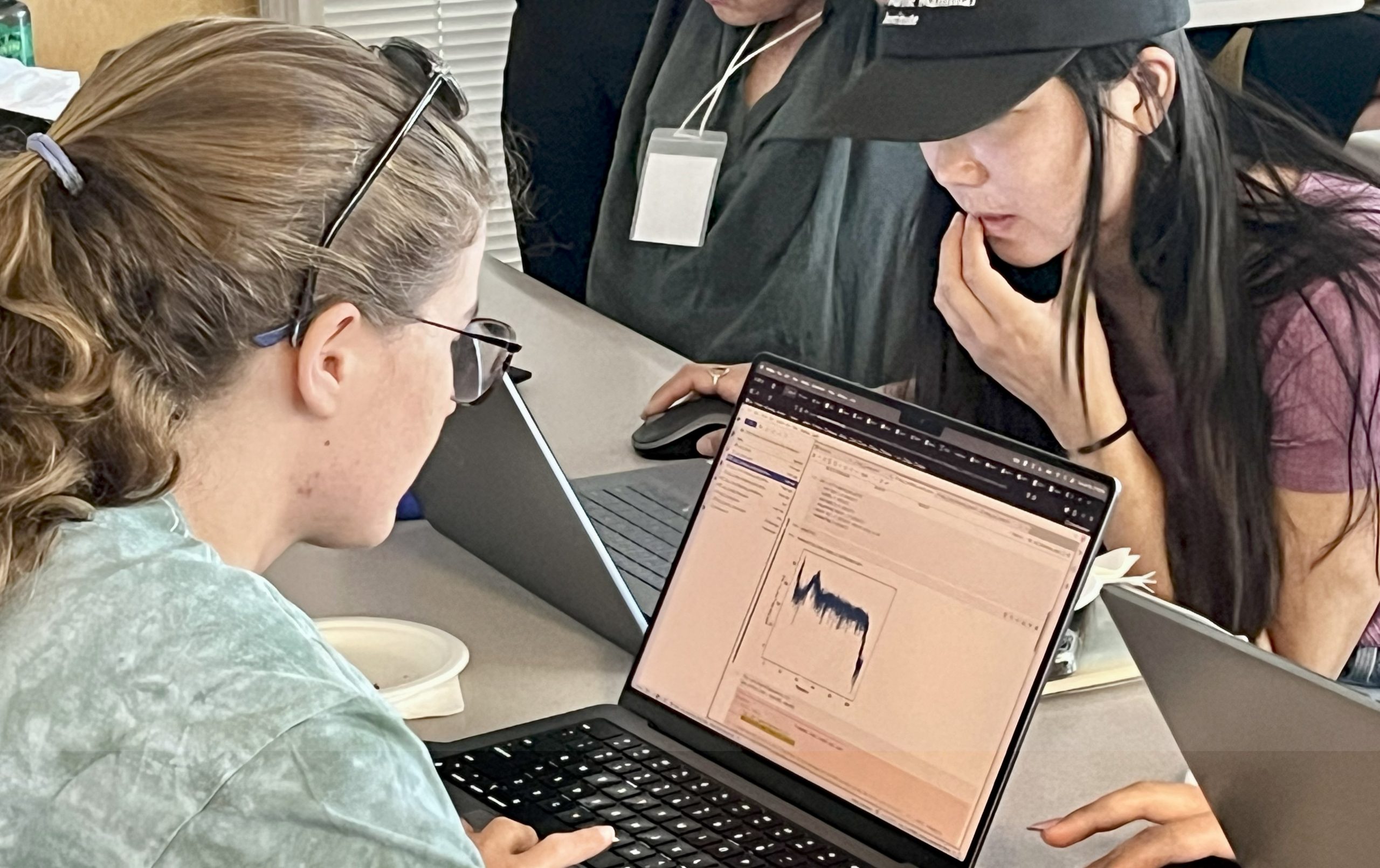 Students working through data exercises in the OOI JupyterHub environment. Credit: Holly Morin, OOIFB[/caption]
[caption id="attachment_36897" align="alignnone" width="2560"]
Students working through data exercises in the OOI JupyterHub environment. Credit: Holly Morin, OOIFB[/caption]
[caption id="attachment_36897" align="alignnone" width="2560"]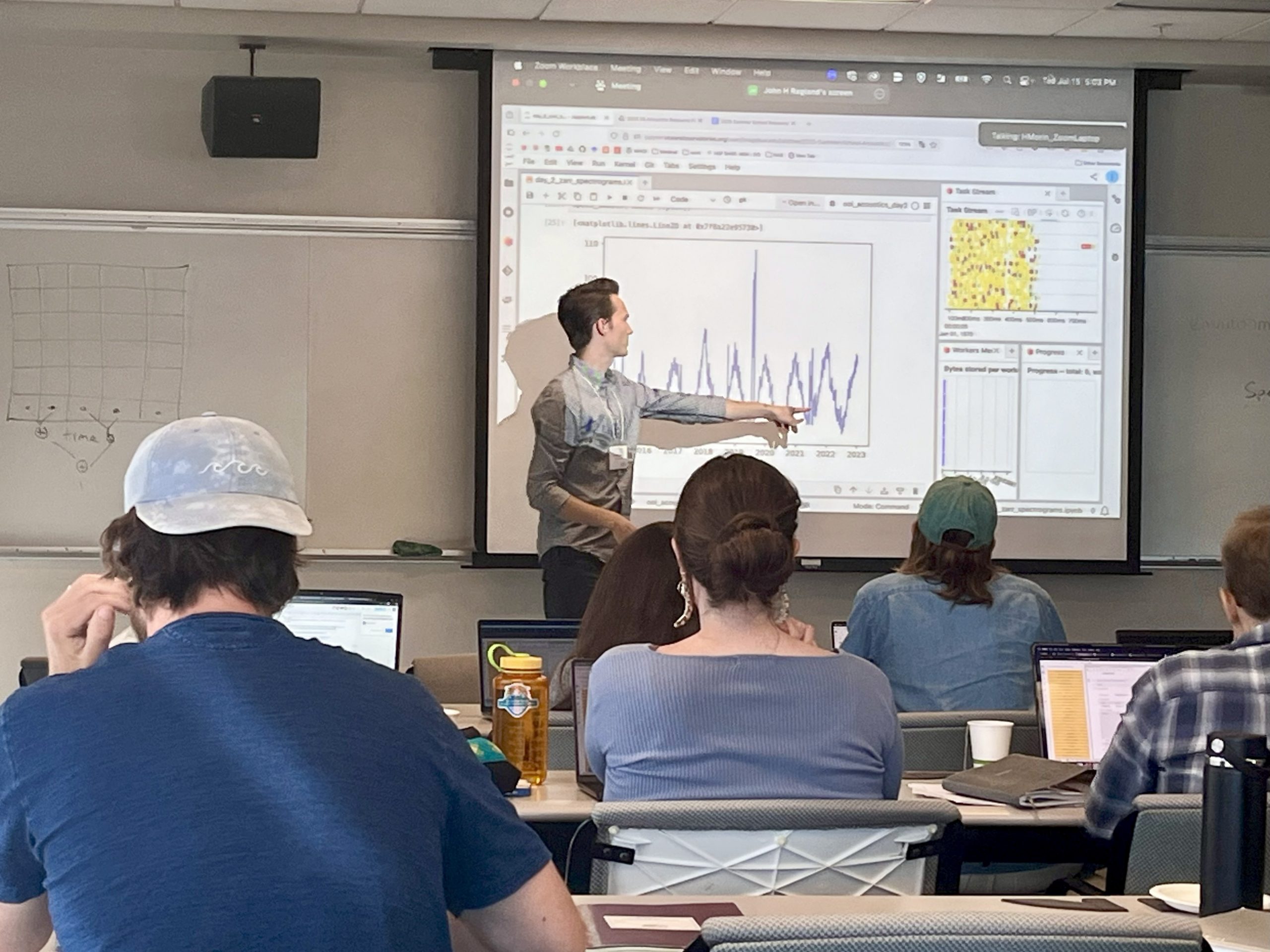 Dr. John Ragland works with participants to interpret outputs from a passive acoustic dataset. Credit: Holly Morin, OOIFB[/caption]
[caption id="attachment_36898" align="alignnone" width="2560"]
Dr. John Ragland works with participants to interpret outputs from a passive acoustic dataset. Credit: Holly Morin, OOIFB[/caption]
[caption id="attachment_36898" align="alignnone" width="2560"]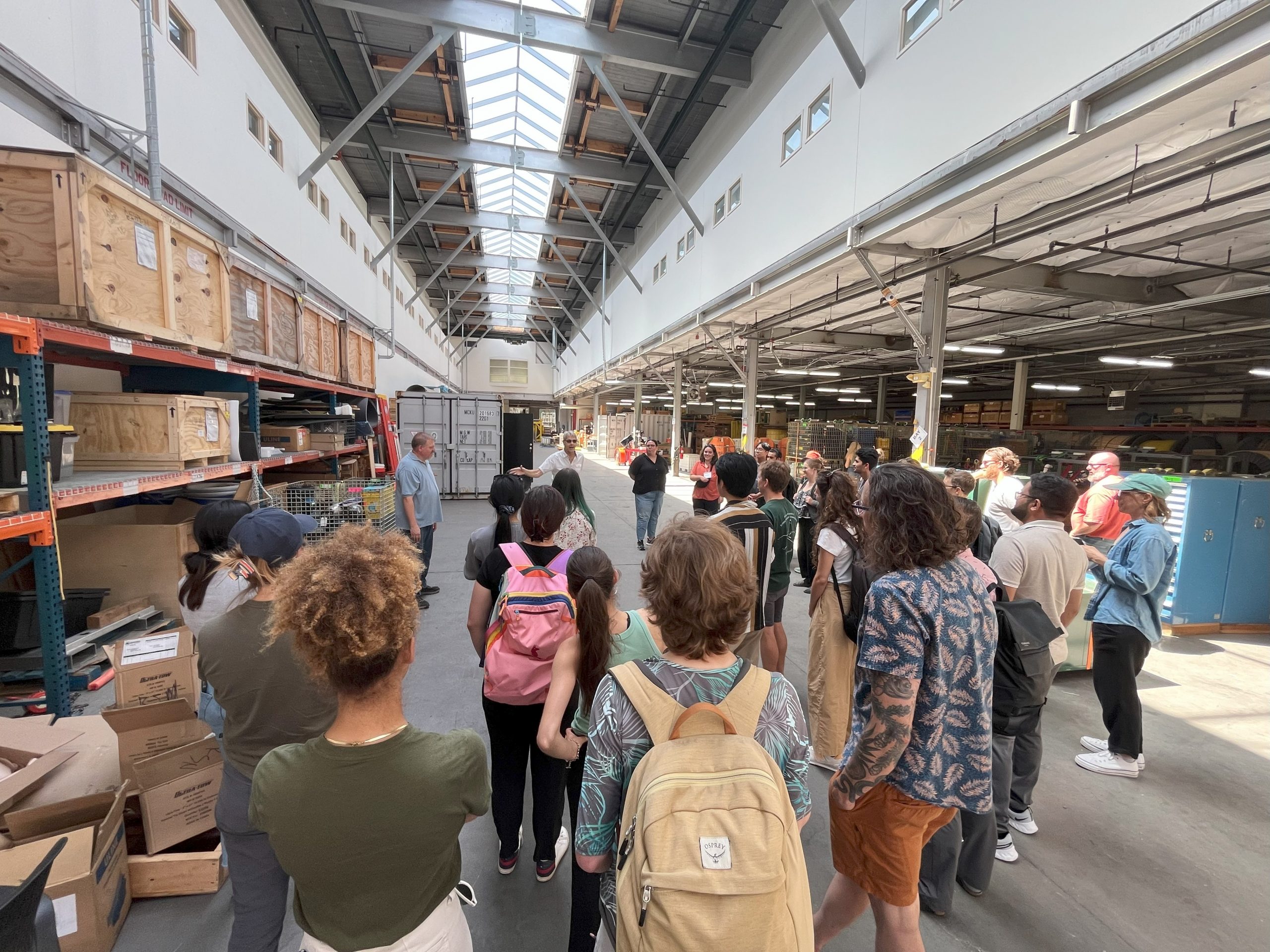 Participants tour the OOI-RCA Sand Point Facility. Credit: Holly Morin, OOIFB[/caption]
Read More
Participants tour the OOI-RCA Sand Point Facility. Credit: Holly Morin, OOIFB[/caption]
Read More Call for Applications: OOIFB Data Systems Committee
The Data Systems Committee (DSC) of the Ocean Observatories Initiative Facility Board (OOIFB) was established to help ensure timely and reliable access to high-quality U.S. National Science Foundation (NSF) Ocean Observatories Initiative (OOI) data. The Committee evaluates and recommends improvements to the data services, policies, and practices of the NSF OOI Facility that will lead to more efficient and effective scientific use of NSF OOI data.
The DSC is now soliciting applications to fill one open position. This 3-year appointment will begin in October 2025. The selected individual will be eligible to serve a second 3-year term, if fitting.
The DSC holds one web conference each month and at least one in-person meeting per year. Some objectives of the DSC include:
● Keeping abreast of the current state of the NSF OOI cyberinfrastructure and data services with the goal of helping to promote maximum scientific use of NSF OOI data. These efforts will be informed by the FAIR Guiding Principles for scientific data management and stewardship, such that data are: a) Findable, b) Accessible, c) Interoperable, and d) Reusable.
● Encouraging the use of best practices, standards, and naming conventions established by the oceanographic community.
● Engaging with the user community to gauge user needs in regard to NSF OOI data systems, and to facilitate the promotion of a positive user experience.
● Staying current on potential new modes of data service and access, data analysis methodologies, and related technologies that facilitate the use of NSF OOI data.
● Engaging with members of the NSF OOI Program regarding the priorities and plans of the NSF OOI cyberinfrastructure groups.
● Making recommendations for data products, usage metrics, and improving the user experience on the OOI Data Explorer, as well as other data service systems employed by the NSF OOI.
Scientists with interests and/or experience using scientific observing systems such as the NSF OOI, as well as those with experience in successfully delivering data from large-scale multi-sensor observing systems to scientific users are encouraged to apply. Familiarity/expertise with biogeochemistry datasets is preferred but not required. All applications will be considered. Interested applicants should submit a letter of interest and accompanying CV to Holly Morin, at the OOIFB Administrative Support Office (holly@ooifb.org), no later than September 16, 2025. The statement of interest should highlight the applicant’s experience with NSF OOI data services and/or with other similar data services. Applicants might also include a vision for how these experiences might evolve in the future. For more information about the DSC and its activities, please visit the OOIFB website (http://ooifb.org), or contact Jim Potemra, DSC Chair (jimp@hawaii.edu).
Read MoreOOIFB Focus Group Highlights the Power of the Imaging FlowCytobot
Back in 2021, a series of community-driven Innovations Labs helped shape the scientific priorities for the relocation of the OOI Pioneer Array from the New England Shelf to the Mid-Atlantic Bight (MAB). One high-priority request that emerged was phytoplankton imaging, essential for advancing our understanding of biogeochemical cycling and ecosystem responses.
To meet that need, the OOI deployed a state-of-the-art Imaging FlowCytobot (IFCB) on the Pioneer MAB Central Surface Mooring in April 2024. This oceanographic sensor merges flow cytometry and video imaging to capture high-resolution images of microscopic aquatic life (mainly phytoplankton) while also recording key properties like chlorophyll fluorescence and light scattering. After running for a full year, the instrument was recovered in April 2025, and its data are now publicly available to researchers and educators alike.
Goals and Activities of the 2025 Focus Group
To engage the research community with this unique data collection tool, the U.S. National Science Foundation OOI Facility Board (OOIFB) hosted a 2.5-day Focus Group from June 18–20, 2025, at the University of North Carolina Wilmington’s Center for Marine Science. The goal was to build a community of practice around the new IFCB deployment, showcasing its potential and offering hands-on opportunities for the ocean science community to engage with this cutting-edge technology.
Roughly 30 participants gathered for a deep dive into all things IFCB. The event kicked off with an introduction to the technology itself and its integration with OOI infrastructure. Participants then explored real-world research applications of IFCB data, followed by tutorials on how to access, download, and work with these datasets using the IFCB dashboard interface.
Attendees used Python, MATLAB, and R coding environments to visualize and analyze IFCB data, tackling a range of scenarios that revealed both the strengths and limitations of these data products. The format allowed users to compare workflows and troubleshoot in real time, promoting collective problem-solving and peer learning.
Roundtable discussions between participants and OOI Program Managers helped clarify what the IFCB community needs from the data and the associated tools. From those conversations, ideas emerged for future resources like shared GitHub repositories, use-case-driven tutorials for students, and dedicated forums to continue building community momentum.
Community Engagement
This focus group showcases how OOI actively fosters community engagement, especially when introducing new scientific capabilities. By building meaningful “on-ramps” for users to access data, apply new methods, and contribute to shared tools, OOI is cultivating a collaborative research environment. These events bring people together across disciplines and career stages, helping to democratize access to oceanographic data. They foster shared ownership, letting researchers shape how OOI data is used and understood.
By fostering a culture of open access and technical sharing, the focus group strengthened the foundation of a growing IFCB user community, one capable of advancing our understanding of marine ecosystems at the microbial level. The IFCB is a catalyst for connection, discovery, and long-term scientific collaboration.
[gallery size="large" ids="36719,36720,36721,36722,36723"] Read MoreOOIFB Imaging FlowCytobot (IFCB) Community Focus Group
The NSF-funded Ocean Observatories Initiative Facility Board (OOIFB) will host an Imaging FlowCytobot (IFCB) Community Focus Group from June 18-20, 2025, at the University of North Carolina, Wilmington’s Center for Marine Science. The OOIFB would like to convene ~ 25 members of the IFCB community to engage in:
- An introduction and overview of the OOI-IFCB instrument and its data, demonstrating how users can access and download OOI data (example IFCB data products will be shared).
- Guided tutorials and hands-on exercises working with use-case scenarios.
- Key conversations about IFCB community expectations for the NSF OOI (infrastructure and data), and what the NSF OOI expectations may be for the community.
Spring 2025 OOIFB and DSC Meetings
The OOI Facility Board (OOIFB) and Data Systems Committee (DSC) will hold their 2025 Spring Meetings on Tuesday, May 6, and Wednesday, May 7, 2025. A site visit day with other activities (and/or, discussion carry-over if need be) is planned for Thursday, May 8, 2025 (“Field Trip Thursday”). The meetings will be held in person, but virtual participation will also be available. As always, these in-person meetings are open to the public (except during closed-door sessions as indicated on the agenda); space is limited, however, and a RSVP is required to attend.
The meetings will be held at the Oregon State University campus in Corvallis, Oregon. The planned schedule is as follows:
- Tuesday, May 6th- DSC meeting
- Wednesday, May 7th – OOIFB and DSC joint session
- Thursday, May 8th – cont’d discussion (if needed); OSU-OOI site visits and field activities (all are encouraged to stay for this day)
2025 OOIFB Summer School on Acoustics: Applications Now Open
The Ocean Observatories Initiative Facility Board (OOIFB), funded by the U.S. National Science Foundation (NSF), is hosting the 2025 Summer School on Acoustics from July 14–18, 2025, at the University of Washington in Seattle, WA.
This five-day, in-person program will provide targeted lectures, hands-on tutorials, and practical exercises using real-world examples and NSF Ocean Observatories Initiative (OOI) data products. Participants will focus on accessing, analyzing, and interpreting acoustic data alongside complementary oceanographic datasets available through OOI.
By the end of the program, participants will have a deeper understanding of underwater sound propagation, passive and active acoustic instruments (e.g., hydrophones and echosounders) deployed through OOI, and the available datasets. They will also learn how to navigate OOI data portals, apply basic acoustic data processing methods, and explore how these data can support scientific research. The program also offers opportunities to connect with a professional network of researchers using OOI data.
There are no registration fees, and travel support is available for participants from U.S. institutions. For details on program requirements, eligibility, a draft agenda, and the application process, visit the OOIFB Summer School on Acoustics webpage.
Please share this opportunity with your colleagues and networks. For questions, contact Holly Morin (holly@ooifb.org).
Read MoreOpen Call for Applications: OOI Facility Board
The U.S. National Science Foundation (NSF) Ocean Observatories Initiative Facility Board (OOIFB) is tasked with representing the science community and users of the NSF Ocean Observatories Initiative (OOI) Facility. The OOIFB works to expand scientific and public awareness of OOI, and ensure that the oceanographic community is kept informed of developments of NSF OOI.
The OOIFB is soliciting applications to fill one membership position that will open as of November 30, 2024. The selected individual will fill one term that will run through November 30, 2027, and then be eligible to serve an additional 3-year term.
Scientists, spanning water column to seafloor expertise, as well as experimentalists, engineers, and modelers, with experience using scientific observing systems, such as the NSF OOI, are encouraged to apply. Familiarity/expertise with Station Papa, the Irminger Sea Array, and/or the Regional Cabled Array are preferred, although not required. All interested applicants will be considered.
The OOIFB holds at least one in-person meeting per year and one web conference each month. The responsibilities of the OOIFB may include, but are not limited to, the following:
- Serving as the prime scientific and technical conduit between the oceanographic community and NSF regarding OOI.
- Examining the accomplishments and work flow of the NSF OOI Operator, in order to provide feedback regarding the NSF OOI Annual Work Plans (AWPs).
- Via workshops, community meetings, and/or other mechanisms, stimulate and engage the user community in order to keep the accomplishments of the NSF OOI at the cutting edge of scientific inquiry and technological innovation.
- Developing and implementing strategies to expand scientific and public awareness of the unique scientific and technological opportunities of the NSF OOI.
- Helping to identify collaborative relationships with potential governmental, industrial, educational, and international partners in the NSF OOI, where appropriate.
- Ensure fair and consistent access to the NSF OOI by all sectors of the user community.
Applications should be submitted to Holly Morin, at the OOIFB Administrative Support Office (holly@ooifb.org), and must include a letter of interest and a CV. The statement of interest should highlight the applicant’s experience using observatory data and have fostered an environment of respect in their research endeavors.
Please note, applications cannot be accepted from individuals affiliated with the NSF OOI Program Facility institutions (Woods Hole Oceanographic Institution, Oregon State University, and the University of Washington), individuals under contract with the NSF OOI Program, and individuals from institutions already represented on the OOIFB (the current list of OOIFB members is available HERE).
Applications are due by November 18, 2024. Applications will be reviewed by the OOIFB, who will give due consideration to the qualifications of applicants, as well as the maintenance of gender, career level, discipline, and regional balance on the OOIFB. For more information about OOIFB and its activities, please visit the website, http://ooifb.org, or contact Dax Soule, OOIFB Chair (Dax.Soule@qc.cuny.edu).
Read MoreConnecting Science and Community: Key Insights from the OOIFB Pioneer MAB Workshop
The Coastal Pioneer Southern Mid-Atlantic Bight (MAB) Array Community Workshop, held from September 10-12, 2024, at Old Dominion University, brought together a diverse group of scientists, educators, and stakeholders to explore the potential of the Pioneer MAB Array in advancing oceanographic research in the region. Funded by the U.S. National Science Foundation (NSF) and dedicated to the memory of Dr. Larry Atkinson, the event organized by the Ocean Observatories Initiative Facilities Board (OOIFB), aimed to highlight the array’s capabilities, evaluate regional research progress, and promote collaboration within the ocean research community.
Workshop Focus and Objectives
The workshop offered an in-depth exploration of the Pioneer MAB Array, showcasing its measurement capabilities and ability to improve our understanding of the Southern Mid-Atlantic Bight’s complex oceanographic processes. Participants reviewed past research, discussed data access, and assessed current knowledge and gaps in the region, guided by insights from local stakeholders to align research priorities with community needs.
Day 1: Setting the Stage for Collaborative Research
The first day began with a dedication to Dr. Larry Atkinson, whose career laid the groundwork for many oceanographic initiatives in the region. The morning sessions featured an overview of NSF funding opportunities, encouraging participants to propose innovative research projects using OOI data.
The OOI presentations showcased the successes of past research and outlined the proposal process for adding instruments to the array. These discussions set the stage for deeper dives into key science themes, such as the dynamics of shelf-slope exchange, biogeochemical cycling, and the impact of extreme events like hurricanes, winter storms and freshwater outflows.
The afternoon was dedicated to breakout sessions, where participants engaged in discussions on specific science themes. These sessions allowed for the exploration of collaborative research ideas and the identification of potential projects that could leverage the capabilities of the Pioneer MAB Array.
Day 2: Harnessing Data for Research and Innovation
The second day focused on data access and utilization, with hands-on demonstrations of the latest OOI data tools. Participants were introduced to the OOI Data Explorer and other data access methods that facilitate the retrieval and analysis of complex oceanographic data. These sessions also highlighted the program’s approach to data quality assurance and control, ensuring that researchers have access to reliable and accurate information.
Breakout sessions offered practical experience with data access through various platforms including Jupyter notebooks. These tools enable researchers to leverage the rich datasets provided by the Pioneer MAB Array for a wide range of projects, from studying physical oceanography and biogeochemistry to investigating ecosystem dynamics and the effects of extreme weather events.
The day concluded with a panel discussion on the use of modeling in interdisciplinary projects, providing insights into how data can be integrated into complex models to better understand ocean processes.
Day 3: Expanding Broader Impacts and Future Directions
The final day of the workshop shifted focus to the broader impacts of using OOI data in educational and community contexts. Panel discussions explored innovative ways to integrate OOI data into K-12 and higher education curriculums, as well as engaging citizen scientists and the fishing community in data collection and its many uses. These sessions highlighted the potential for data-driven outreach and education programs to inspire the next generation of oceanographers and to raise public awareness of ocean science.
Key Takeaways
The workshop highlighted the Pioneer MAB Array’s potential to advance our understanding of the Southern Mid-Atlantic Bight and emphasized the importance of accessible data for researchers, educators, and citizen scientists. It effectively fostered collaboration within the scientific community, paving the way for new research initiatives that will propel scientific progress in the region for years to come.
[caption id="attachment_34869" align="alignnone" width="640"]
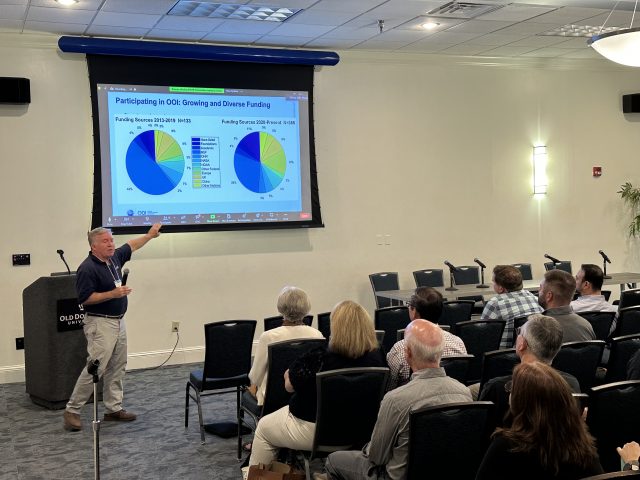 OOI Principal Investigator, James Edson[/caption]
[caption id="attachment_34866" align="alignnone" width="640"]
OOI Principal Investigator, James Edson[/caption]
[caption id="attachment_34866" align="alignnone" width="640"]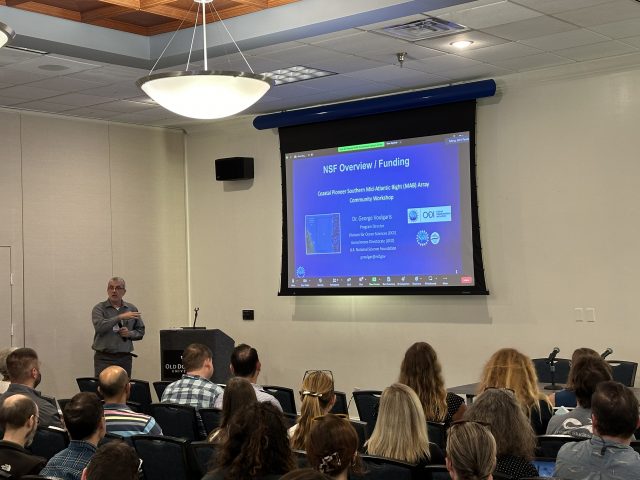 George Voulgaris, NSF OOI Program Director[/caption]
Read More
George Voulgaris, NSF OOI Program Director[/caption]
Read More Data Systems Committee – Call for Applications
The Data Systems Committee (DSC) of the Ocean Observatories Initiative Facility Board (OOIFB) was established to help ensure timely and reliable access to high-quality U.S. National Science Foundation (NSF) Ocean Observatories Initiative (OOI) data. The Committee evaluates and recommends improvements to the data services policies and practices of the NSF OOI Facility that will lead to more efficient and effective scientific use of NSF OOI data. The DSC is now soliciting applications to fill one open position. This 3-year appointment will begin October 2024. The selected individual will be eligible to serve a second 3-year term, if fitting.
The DSC holds at least one in-person meeting per year and one web conference each month. Some objectives of the DSC include:
- Keeping abreast of the current state of the NSF OOI cyberinfrastructure and data services with the goal of helping to promote maximum scientific use of NSF OOI data. These efforts will be informed by the FAIR Guiding Principles for scientific data management and stewardship, such that data are: a) Findable, b) Accessible, c) Interoperable, and d) Reusable.
- Encouraging the use of best practices, standards, and naming conventions established by the oceanographic community.
- Engaging with the user community to gauge user needs in regard to NSF OOI data systems, and to facilitate the promotion of a positive user experience.
- Staying current on potential new modes of data service and access, data analysis methodologies, and related technologies that facilitate the use of NSF OOI data.
- Engaging with the NSF OOI Program team regarding the priorities and plans of the NSF OOI cyberinfrastructure groups.
- Making recommendations for data products, usage metrics, and improving the user experience on the OOI Data Explorer, as well as other data service systems employed by the NSF OOI.
Scientists with interests and/or experience using scientific observing systems such as the NSF OOI, as well as those with experience in successfully delivering data from large-scale multi-sensor observing systems to scientific users are encouraged to apply. Interested applicants should submit a letter of interest and accompanying CV to Holly Morin, at the OOIFB Administrative Support Office (holly@ooifb.org), no later than September 17, 2024. The statement of interest should highlight the applicant’s experience with OOI data services and/or with other similar data services. Applicants might also include their experiences with OOI data services and/or a vision for how these might evolve in the future. All applications will be considered. Applications will be reviewed by the DSC members who will give due consideration to the qualifications of applicants, as well as to maintenance of gender, career level, disciplinary, and regional balance on the Committee. For more information about the DSC and its activities, please visit the OOIFB website: http://ooifb.org or contact Jim Potemra, DSC Chair (jimp@hawaii.edu).
Read More
